Search Images
Browse Content (p. 1589)
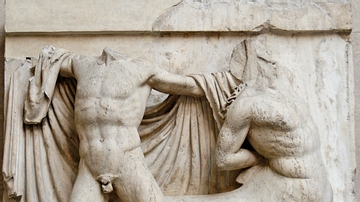
Image
Lapith & Centaur, Parthenon Metope
A Lapith fighting a Centaur, regarded as one of the finest metopes from the Parthenon. 5th century BCE. (British Museum, London)
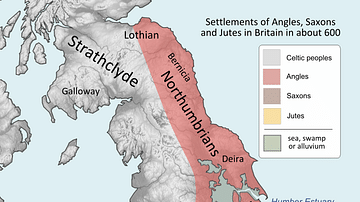
Image
Britain, c. 600 CE
Approximate distribution of the different groups living in Britain in c. 600 CE.

Image
The Meeting of Dido and Aeneas
The Meeting of Dido and Aeneas by Nathaniel Dance-Holland (1735–1811). Oil on canvas. On display at Tate Britain, London, Room 6.
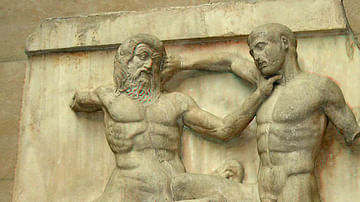
Image
Centaur & Lapith Metope, Parthenon
A metope depicting a centaur battling a Lapith, from the Parthenon, 5th century BCE. (British Museum, London)
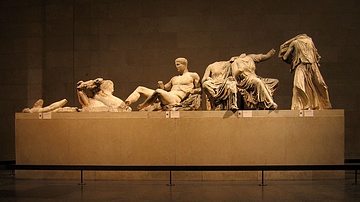
Image
East Pediment of the Parthenon
The left section of the east pediment of the Parthenon. On the far left Helios and his chariot rise from the base of the pediment, next is Dionysos reclining, then the figures are female deities, possibly Demeter, Kore and Artemis. (British...
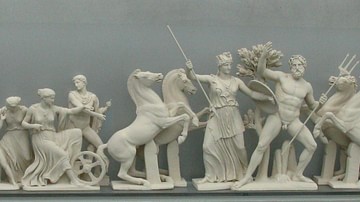
Image
West Pediment of the Parthenon (Reconstruction)
A reconstruction of the west pediment of the Parthenon where Athena and Poseidon battle for the favour of the Athenians flanked by the ancient kings of Athens, including Kekrops.
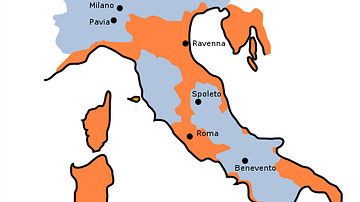
Image
Map of Lombard Kingdom, 575 CE
Map of Lombard Kingdom at the time of King Alboin's death, 575 CE
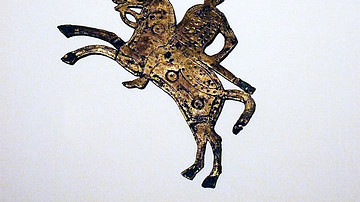
Image
Lombard Horseman Shield Mount
Lombard Horseman Shield Mount from an elite burial in Stabio (Ticino), gilded sheet bronze, now in Historical Museum of Bern.
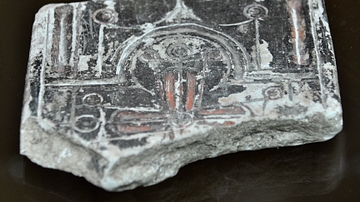
Image
Gypsum Cross from Darbandi Bazian
This piece is part of a collection of gypsum crosses which were found in Darbandi Bazian, modern-day Sulaimaniya Governorate, Iraq. They date back to the late Sassanid/early Islamic period, 3nd to 7th centuries CE. The Sulaimaniya Museum...
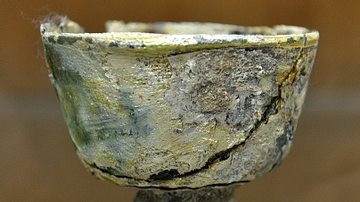
Image
Glass Beaker for Ritual Services
This glass beaker was used for religious rituals and communal services and dates back to the Parthian/Sassanid period, 350 BCE to 636 CE. From Mesopotamia, modern-day Iraq. The Sulaimaniya Museum, Iraq.